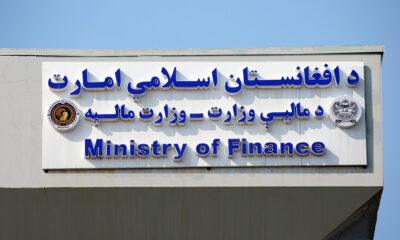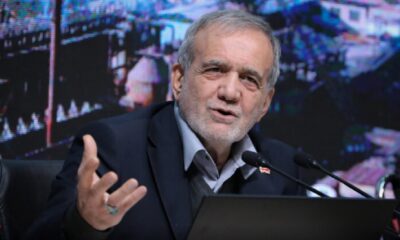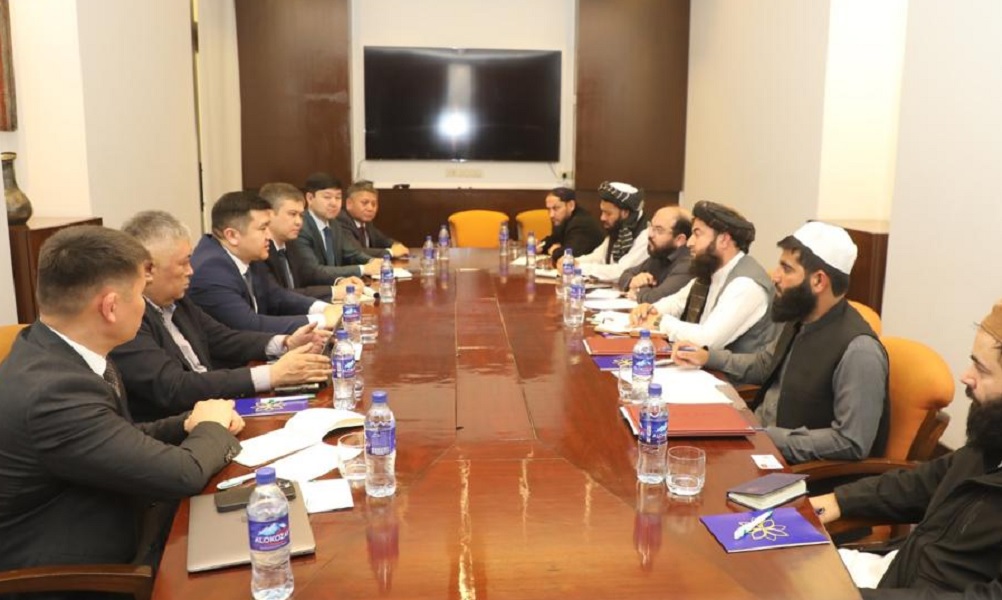Business
Police close crypto currency exchanges in Herat

Security forces have closed crypto currency exchanges in Afghanistan’s western Herat province after a ban on crypto trading was imposed about three months ago in the country.
At least 16 cryptocurrency exchanges have been closed in the past week in Herat.
“Da Afghanistan’s Bank (central bank) stated in a letter that digital currency trading has caused lots of problems and is scamming people, therefore they should be closed. We acted and arrested all the exchangers involved in the business and closed their shops,” said Sayed Shah Sa’adat, head of the counter-crime unit of Herat police.
Herat Money Exchangers’ Union also said that people were being scammed through digital currency trading.
“Digital currency accounts are outside the country and are purchased from the companies. Our people are not familiar with it, so it is better not to use it. This currency is new in the market and has high fluctuation [rates],” said Ghulam Mohammad Suhrabi, head of Herat Money Exchangers’ Union.
There is no specific data on how many people trade in forex or crypto currencies online, experts said.
“Digital currency is a new phenomenon which is not used in Afghanistan, therefore the process should be monitored by the government so that there will be no scamming and people can make better investments,” said Shahram, a resident in Herat.
“The government should monitor and prevent digital currency activities, otherwise assets leave Afghanistan. People also suffer losses because syndicates are involved and rates fluctuate daily,” said Mawla Alizada, a Herat resident.
Business
Pezeshkian pledges to facilitate Iran-Afghanistan trade

Iranian President Masoud Pezeshkian has said that Tehran will facilitate trade and economic exchanges with Afghanistan, including easing procedures at customs and local marketplaces.
He made the remarks during a televised interview following his visit to South Khorasan province, which shares a border with Afghanistan.
Pezeshkian, in a separate event addressing local business leaders, highlighted the province’s strategic advantages, citing its rich mineral resources, proximity to neighboring countries such as Afghanistan and Pakistan, and access to the ocean via the Chabahar port. He described the region as “a golden opportunity not found everywhere,” emphasizing its potential for economic growth and cross-border commerce.
Business
Afghanistan-Kazakhstan banking ties discussed in Kabul meeting
Business
Afghanistan, Kazakhstan envoys discuss expanding trade and regional connectivity
Ambassador Shakeeb thanked Kazakhstan for its continued support and constructive engagement with Afghanistan, particularly in efforts aimed at peace and economic development.

Afghanistan’s Ambassador to Pakistan, Sardar Ahmad Shakeeb, has met with Kazakhstan’s Ambassador to Pakistan, Yerzhan Kistafin, to explore ways to strengthen bilateral relations and advance regional cooperation.
The two envoys exchanged views on Afghanistan–Kazakhstan ties, regional connectivity, and major infrastructure initiatives, as well as the opportunities and challenges facing regional trade. Discussions also touched on Kazakhstan’s role in promoting regional stability and other matters of mutual interest.
Ambassador Shakeeb thanked Kazakhstan for its continued support and constructive engagement with Afghanistan, particularly in efforts aimed at peace and economic development.
He expressed hope that the proposed $3 billion joint trade agreement, once finalized, would bring tangible benefits to both countries and contribute to broader regional economic integration.
Ambassador Kistafin reaffirmed Kazakhstan’s support for stability and economic growth in Afghanistan, highlighting his country’s involvement in key regional connectivity and trade projects.
He said the current security and stability situation in Afghanistan has increased Kazakhstan’s confidence in expanding regional trade and transit, and praised the efforts of the Islamic Emirate in this regard.
He also stressed the need for coordinated regional efforts to ensure lasting stability, sustainable economic development, and the smooth movement of goods and transit across the region.
-

 Latest News4 days ago
Latest News4 days agoIEA supreme leader stresses enforcement of Sharia law and sincere public service
-

 Sport4 days ago
Sport4 days agoILT20: Sharjah Warriorz secure 11-run victory over Gulf Giants
-

 Business4 days ago
Business4 days agoAfghanistan, India discuss expanding investment opportunities
-

 International Sports3 days ago
International Sports3 days agoIPL 2026: Teams take shape after auction as franchises balance star power and depth
-

 Sport4 days ago
Sport4 days agoAbu Muslim Farah crowned champions of fifth season of Afghanistan Champions League
-

 International Sports3 days ago
International Sports3 days agoILT20: Abu Dhabi Knight Riders end Desert Vipers’ unbeaten run in dramatic one-run win
-

 Latest News4 days ago
Latest News4 days agoEU and IFC launch €5 million program to support Afghanistan’s private sector
-

 Latest News4 days ago
Latest News4 days agoHigh-level Kyrgyz delegation arrives in Kabul

























